Meet Canary7
The Ultimate Guide to 3PL Marketplace Integrations
Partner with Canary7 to take your operations to the next level with world class marketplace integrations!
Partner with Canary7 to take your operations to the next level with world class marketplace integrations!
Partner with Canary7 to take your operations to the next level with world class marketplace integrations!
Did you know that B2C marketplaces are estimated to reach $3.5 trillion by the time 2024 rolls around?
Or that 63% of all business in the USA is performed via marketplaces?
Even if you didn’t know those exact figures, you probably already know the importance of marketplaces, especially online ones, in today’s day and age. Whether you are a 1PL retailer or a 3PL provider, marketplaces are key to your success, since the customer-base they provide you with is very expansive, and hosts billions of people.
However, succeeding in selling products on marketplaces is not as easy as it seems. When 3PL is thrown into the mix, it becomes even harder for both businesses as well as third party logistics providers to dominate the marketplace. It requires a lot of work, effort, dedication, and of course, 3PL marketplace integrations.
Not sure what 3PL marketplace integrations are?
Then this article is for you. Below, we discuss not only what 3PL marketplace integrations are, but also how they work and how they can ultimately help 3PL businesses provide smooth and seamless logistics for their clients. So go on and keep reading!
Contents:
Let’s start from the very beginning and have a look at what we mean when we say “marketplace.” What exactly is a marketplace, especially in the 21st century?
The dictionary definition of a marketplace tells us that a marketplace is essentially an “arena of commercial dealings.” So, any place where trade takes place qualifies as a marketplace. Technically, this could be the Sunday market that pops up near your house one day, or maybe even the garage sale your neighbour organises for charity.
However, when we say “marketplace” in 2022, it is more than likely that we are not referring to any of the aforementioned instances, but an online platform that brings vendors together and allows them to sell their products and sometimes, even services. A marketplace essentially provides businesses of every size and almost every nature to tap into a large, demographically diverse customer-base.

As you can tell, the actual definition of a marketplace is quite broad. However, to understand what marketplaces mean today, let’s split them into three categories: business-to-business (B2B), business-to-customer (B2C), and peer-to-peer (P2P) or customer-to-customer (C2C).
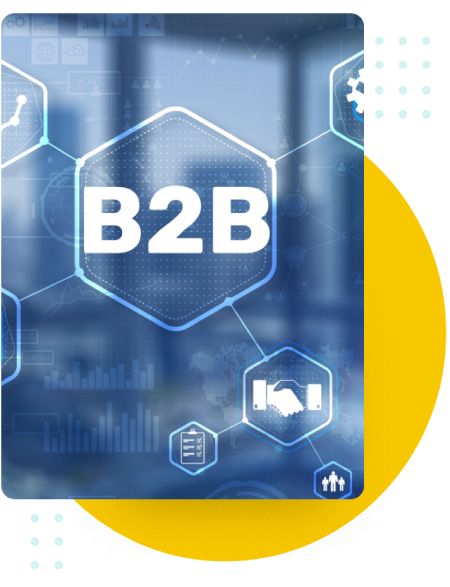
A B2B marketplace is an online platform that allows wholesale suppliers to sell their products and services to other businesses, who usually buy these items in bulk. The marketplace is likely to be owned by a third party, and hence there is a balance of terms that work out in the favor of both the businesses involved.
There are multiple business models that a B2B business could include, such as a commission-based business model, a listing fee business model, and a subscription business model. The way the seller gets charged for listing their products or services varies in each, but the way these models operate in practicality more or less remains the same.
Examples of the best B2B platforms include Amazon, Alibaba, and Made-in-China. If you have ever used any of these platforms before, you would know that they are focused on automating the selling and buying process in a way that provides convenience to everyone involved. This is what B2B marketplaces in general are all about as well – automation, efficiency, and a great buying experience.
Sellers get the following benefits if they have an active presence on a B2B marketplace:
In contrast to B2B marketplaces that are usually only targeted towards businesses, B2C marketplaces involve different types of parties for the buying and selling process: businesses AND customers. What happens is that businesses sell their products and services directly to the end user, instead of selling it in bulk to another business.
The aim of B2C marketplaces also seems to be providing convenience. The large range of products that can be sold on a B2C marketplace means that customers get a huge selection to choose from, and can hence buy a variety of goods without having to shop for everything they need separately.
Like B2B marketplaces, B2C marketplaces also have different models. These include subscription business model, commission-based business model, and listing fee business model. Again, although the way you get charged will differ from marketplace to marketplace, the way they operate generally remains the same.
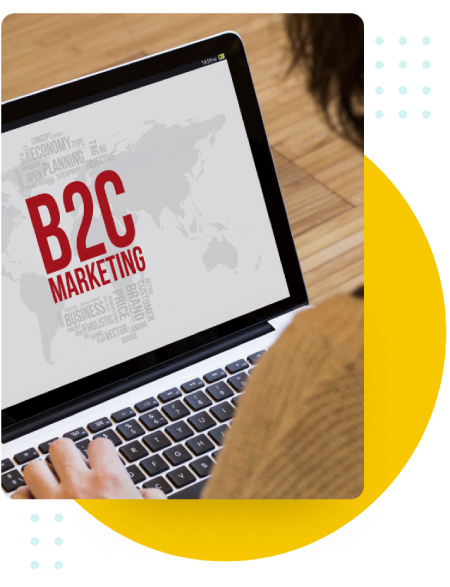
Some notable examples of B2C marketplaces include Booking.com, Craigslist, and of course, everyone’s favourite, AliExpress.
B2C marketplaces are known to provide the following advantages to both the parties involved
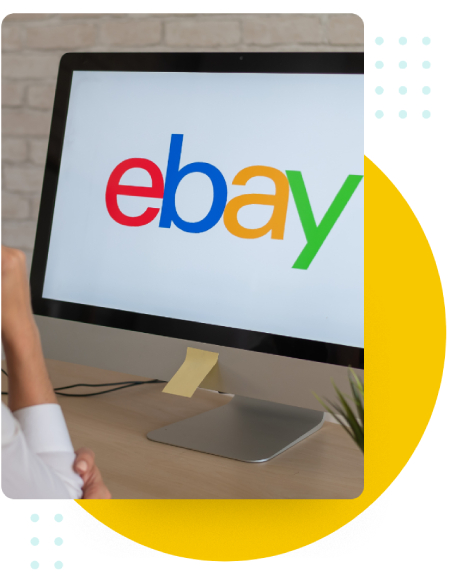
These marketplaces are essentially websites that connect individuals and allow them to share their products, services, and other kinds of work with each other. The ultimate goal behind this particular kind of marketplace is to encourage self-selling, and in some cases, also to help people make optimal use of limited resources.
P2P marketplaces usually have shorter sales cycles as well as length of seller/buyer relationships – so they are somewhat to the point. You want something, and someone else on a P2P marketplace has it; trading on P2P marketplaces can be as simple as that.
The business models for P2P marketplaces include ones that involve paid promotions or advertisements. Essentially, the marketplace empowers individuals to either promote their goods and services by paying the marketplace, or advertise them by paying a fee either based on the cost per impression model (CPI), cost per click (CPC), or cost per period (daily, weekly, monthly).
You must be wondering why marketplaces are so popular.
For the most part, the reasons behind this are quite straightforward – online marketplaces provide people with the convenience they are always looking for. Thanks to technology pervading almost every single area of human life, people have become used to convenience, and want to finish all their processes with utmost convenience, and nothing else. This is true for shopping as well. So, since they provide people with convenience whether it comes to buying or selling, they are a fan favourite.
Next, accessibility. Online marketplaces are also very accessible. In a society where everyone is glued to their screens 24/7, it is very important for people to access things they want, when they want them. Especially after 2020 and the pandemic, brick-and-mortar shopping has been recognised as a more laborious, somewhat inaccessible form of online shopping, and hence is not the first option in clients when it comes to buying the things they like. On the other hand, online marketplaces are accessible – all you need to do to get the products/services you like is press a few buttons and voila! You’re good to go. Who can say no to that?
But marketplaces are also very, very popular with sellers – not just customers. This is because marketplaces help businesses do what they always want to do, and that is: get more sales! With the help of marketplaces, businesses get to increase their visibility, tap into their target audience and even beyond, and get clients that are willing to do business in the future as well. These are ultimately the goals of every business ever, and the fact that marketplaces streamline this particular aspect for businesses makes everything considerably easier.
Ultimately, it all comes down to automation. Marketplaces have automated something that will never get too old or go out of trend: shopping. No matter what happens, people will shop, and the fact that they can now do that without having to leave the comfort of their homes makes shopping a much more interesting and fun activity for them.
For businesses, automation is even more beneficial because it means that they no longer have to take care of their operations manually – marketplaces can be managed through the right software solutions, such as 3PL marketplace integrations, and a huge bulk of responsibility can be lifted off of the shoulders of you and your team! Whether it is managing a high volume of orders or ensuring that each customer is happy with your products, marketplaces, supported by the right management systems, can make everything easier, smoother, and definitely much more efficient.
So, where for 3PL integrations and 3PLs generally come into the picture?
Well, remember when we said that businesses and customers alike want convenience first and foremost?
That’s where 3PLs like yours come in. Your job is to provide your customers with a seamless logistics experience, no matter what their preferred sales channel is. Whether it is something as big as Amazon or something slightly more informal like Etsy, your job is to provide 3PL services that not only build your credibility as a fulfilment business, but also aligns with the goals of your customer’s business, because that is the only way you can expect success on both ends.
Yet, when you add third party logistics to the picture, it is bound to complicate things, at least a little bit. You have to manage your customers orders, take care of warehouse activity that flows from it, control the inventory in accordance with sales, and most of all, be vigilant throughout all the processes so that there are no defects, errors, or problems that you have to actively deal with.
Needless to say, the above mentioned tasks can only be executed with accuracy and precision if your 3PL setup is seamlessly integrated with the relevant marketplace…
And that is where 3PL integrations come in.
No matter what the sales channel of your customer is, you need to be well connected with it in order to ensure that you are providing them with the logistics they signed up for. For online marketplaces, this can only be done with the help of 3PL marketplace integrations.
A 3PL marketplace integration is the process that connects your 3PL services with the marketplace of your choice. With the help of this integration, you can then single-handedly manage aspects such as shipping, order, and inventory management. Not only that, but 3PL marketplace integrations can also help you with marketing automation, and align all the other relevant data generated from your activity on the marketplace with what goes on on the back end, i.e. at your warehouse complex.
Enter your details to book a demo of the Canary7 WMS, built for 3PLs, and fulfillment houses.
As mentioned earlier, 3PL marketplace integrations help you complete a lot of tasks that are necessary to ensure the smooth functioning of your customers business, as well as to help you provide them with the logistical help that they need.
It is only with the help of 3PL marketplace integrations that can do things like adding, deleting, syncing, and retrieving data on products and orders, which is necessary to ensure there is a smooth flow of information from one end to another end.
It becomes even more important if your client wants you to take over logistics from multiple sales channels, which means there could be multiple marketplaces to look after. This would form a highly intricate process – but it can be achieved with the help of 3PL marketplace integrations. 3PL marketplace integrations will help you organise and automate a wide range of different processes; not just for one marketplace, but as many as you need help with.
To make it short and simple, 3PL marketplace integrations are important if you want the marketplace of your choice to work in your favour.
In this article, we have looked at a range of marketplaces. However, as a 3PL, you should be aware of the top marketplaces so that you can mentally prepare yourself to not only learn more about these platforms, but also invest in solutions that will make integrations with these marketplaces nothing less than a breeze.
The three main marketplaces that you should be looking to integrate with are Amazon, eBay, and Etsy. We cover each of these in depth in respective pages, so make sure to check that out as a part of your research for the best and most coveted 3PL marketplace integrations.
If we told you that there are absolutely no challenges that you will have to face when setting up 3PL marketplace integrations, we would be lying. However, the good thing is that all of the challenges are easy to deal with, especially if you have the right technological support and have invested in the right software solutions.

The first challenge is that usually, you need expert support to help you with marketplace integrations. This is because 3PL marketplace integrations require advanced technical knowledge, especially if you are planning for everything to go right. This is usually very hard to find and also quite expensive, which means that setting up 3PL marketplace integrations can become quite a chore.
Each marketplace comes with its own API framework, and hence its own set of issues that accompany it. For example, the API on eBay is quite scattered: resources like orders and products have different data formats, which means that integrating with eBay will require a working knowledge of different platforms.


If you are on a mission to do everything on your own and not invest in a software system that can help you do the job, then 3PL marketplace integrations can also be quite time-consuming. Each integration will require about 3 months to complete, and that too if it’s done by high-level experts.
We wish 3PL marketplace integrations were a magic wand that could fix your marketplace problems with just a single wave, but sadly, they aren’t. Integrations, especially 3PL marketplace integrations, are an ongoing process and hence, they require consistent effort from you. If you are unable to give it enough time, you will not be able to crack the code. 3PL marketplace integrations will require maintenance and keeping up with upgrades, so you will have to pay attention to them for a long period of time.
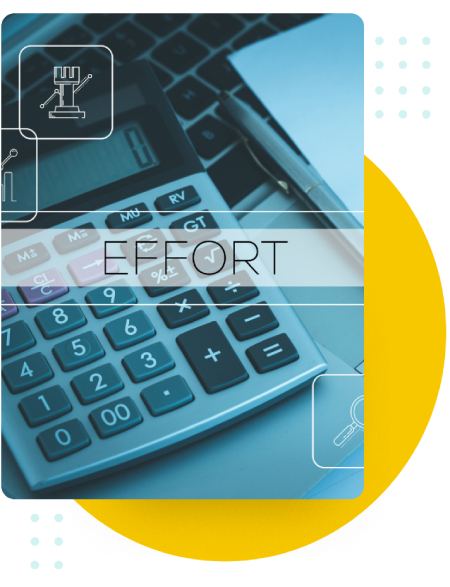
In case you are still not convinced on the fact that you, as a third party logistics provider, need 3PL marketplace integrations in order to ensure that you are providing your customers with what your promise, let us give you a rundown on all the benefits provided by 3PL marketplace integrations:

One of the most important benefits of 3PL marketplace integrations is that they help you save money. Because they connect all the important parts of your business, you can stop spending money on each of them separately and instead, invest in the overall improvement of your business processes. So, it helps you cut down on operational costs. Not only that, but it also helps you use your money better. Since 3PL marketplace integrations give you much needed insights into your business, they make it easier for you to decipher which areas of your business need most work in particular.
In any industry, the value of time and therefore the importance of finishing up tasks with utmost efficiency can simply not be understated. With the help of 3PL marketplace integrations, businesses can speed up their tasks and ensure that all their marketplace related processes are being completed with efficiency. In addition, the fact that 3PL marketplace integrations centralise all the important data you need to work with will also help you save a lot of time, and therefore make it easier for you to align your services with the requirements of your customers’ sales channels. The less time you spend on sorting out marketplace problems, the more of it you can spend on redefining the customer experience itself.


The key to success for 3PLs is organisation. This is because when you come to think of it, the whole third party logistics process is complicated, and has a lot of space where things can go wrong and get messy. If there is one way you can actually avoid this, it is through bringing organisation right to the centre of your 3PL processes. Luckily, 3PL marketplace integrations can help you do that! Not only do they make the marketplace experience considerably better for you, but they also allow you to make sure that other areas of your business are also moving in the right direction and contributing towards the ultimate goals of your business.
If you want to excel in the world of 3PLs, you have to provide services that are customer-centric, well-managed, and can actually bring a positive change to the way the logistics of your clients are handled. This can be achieved by the way of 3PL marketplace integrations – these integrations make your business processes considerably more advanced, and bring automation to the way you deal with things. The automation can then be used to provide better services to your clients.

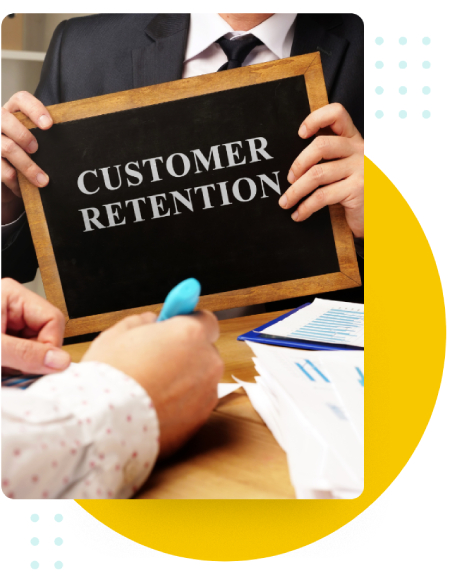
Better services mean that you will be able to attract new clients and grow your customer base. But what’s even more beneficial is that 3PL marketplace integrations help you retain the clients you already have. Essentially, 3PL marketplace integrations are a mechanism of improving the customer experience you provide, and hence can prove to be an integral part of your customer relationship management as well. Therefore, businesses that are looking to work on that aspect of their success will greatly benefit from 3PL marketplace integrations.
For businesses today, dominating at least one major marketplace should be a priority, given that this could be their key to success. Due to this, there are many businesses that consider marketplaces like Amazon, eBay, and Etsy to be amongst their most prominent and important sales channels. Most of these businesses would like the help of 3PLs like you when it comes to managing the logistics of the products they plan on selling on these marketplaces.
However, even for 3PLs, managing the logistics that flow from marketplaces is no easy task. There is a lot of effort involved – especially where there is no help involved. In order to make sure that you aren’t that kind of a third party logistics provider, you can (and should) look into 3PL marketplace integrations.
3PL marketplace integrations are software wonders that can help combine the features of your marketplace of choice with your warehouse complex, so that all of your 3PL activity is interconnected and you can provide your customers with nothing but the best of your services.
For more information on 3PL marketplace integrations as well as other integrations Canary7 can equip you with, visit our website.
Enter your details to book a demo of the Canary7 WMS, built for 3PLs, fulfillment houses, and online retailers.
You can see how this popup was set up in our step-by-step guide: https://wppopupmaker.com/guides/auto-opening-announcement-popups/
You can see how this popup was set up in our step-by-step guide: https://wppopupmaker.com/guides/auto-opening-announcement-popups/